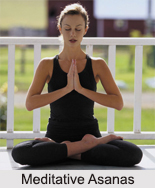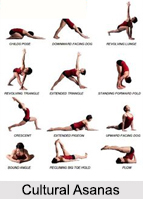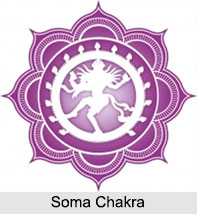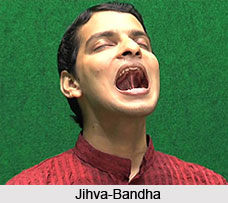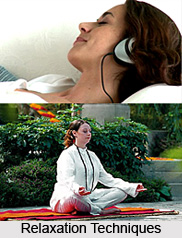 Relaxation forms a very important part of the Hatha Yoga philosophy. It has been said that every action, conscious or unconscious, uses up certain amount of Prana, and if the amount so used up is in excess of the amount which the system has been in the habit of storing, the result is that one becomes weakened and generally used up. Many people have excitable, irritable and emotional habit of mind and they instantly keep their nerves in action and their muscles are always tensed by unrestrained and uncontrolled mental state. In relaxation the muscles and nerves are at rest, and the Prana is being stored up and conserved, instead of being dissipated in reckless expenditures.
Relaxation forms a very important part of the Hatha Yoga philosophy. It has been said that every action, conscious or unconscious, uses up certain amount of Prana, and if the amount so used up is in excess of the amount which the system has been in the habit of storing, the result is that one becomes weakened and generally used up. Many people have excitable, irritable and emotional habit of mind and they instantly keep their nerves in action and their muscles are always tensed by unrestrained and uncontrolled mental state. In relaxation the muscles and nerves are at rest, and the Prana is being stored up and conserved, instead of being dissipated in reckless expenditures.
It has been said that people who experience relaxation are known for their endurance, strength, vigour and vitality. Laziness is not an instance of relaxation. The person understanding relaxation and the conserving of energy accomplishes the best work. He uses a pound of effort to do the pound of work, and he does not waste, slop over, or allow his strength to trickle away. The average person not understanding the law uses up from three to twenty-five times the energy needed to do his work, be that work mental or physical.
The Hatha Yogis use the cat family as illustration of grace, vitality and repose. It has been said that they relax in a proper manner and use their muscles with vitality when it is needed. Relaxation and repose may be cultivated and acquired just as may be other adorable gifts.
It has been said that thoughts take form in action, and actions rest upon the mind. A Yogi believes that anger is an emotion of the lower animals. Similarly, it has been said that there are other emotions with the help of which nothing is accomplished. Controlling of those unworthy emotions is an essential part of relaxation. The man possessed by anger has muscles in strain and receives chronic involuntary impulses from the brain. Similarly the man who is wrapped in the folds, worry is constantly in a state of nervous strain and muscular contraction. So it is very evident that when an individual frees himself from all these reckless emotions he is able to free himself from contraction of muscles.
The practice of relaxation is basically avoiding the tense condition of the muscles, in everyday life and in turn such a state of relaxation reacts upon the mind, and the mind is able to regain its normal poise and repose. The Yogis have said that an important aspect of relaxation is the idea of "let go". An individual should believe in the idea of "let go" so that the muscles do not undergo contraction.
Along with physical relaxation mental relaxation is equally important. Just as physical relaxation acts upon the body and rests it; similarly mental relaxation acts upon the body and relaxes it.
Some of the common advantages of relaxation are:
•Slows heart rate
•Lowers blood pressure
•Improves concentration
•Reduces anger and frustration
•Ensures better sleep
•Boosts confidence to handle problems
•Lowers fatigue
•Reduces muscle tension and chronic pain
•Improves health
•Ensures less headaches and pain
